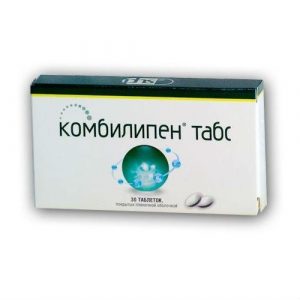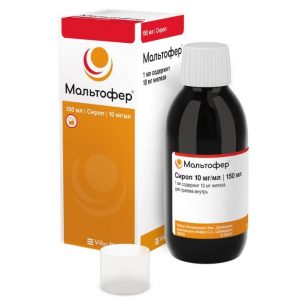Description
Release form
Chewable tablets.
Packing
10 pcs.
Pharmacological action
Ascorbic acid (vitamin C) stimulates redox reactions, carbohydrate metabolism, regulates blood coagulation, tissue regeneration, the formation of steroid hormones, promotes the synthesis of collagen and procollagen, normalizes the permeability of capillaries.
Ascorbic acid is not formed in the human body, but comes only with food.
With a balanced and nutritious diet, a person does not have a deficiency in vitamin C.
Indications
Prevention and treatment of vitamin C hypovitaminosis
With increased body need for vitamin C: during the period of active growth in children, pregnancy, breastfeeding, with increased physical and mental stress, overwork, stressful conditions, during the recovery period after prolonged and serious illnesses.
Contraindications
Hypersensitivity to ascorbic acid components.
Do not administer large doses to patients with increased blood coagulation, thrombophlebitis and a tendency to thrombosis, as well as diabetes mellitus and conditions accompanied by high blood sugar.
Use during pregnancy and lactation
The minimum daily requirement for ascorbic acid in the II-III trimesters of pregnancy is about 60 mg.
The minimum daily requirement for breastfeeding is 80 mg.
mother s diet, containing an adequate amount of ascorbic acid is sufficient to prevent a deficiency of vitamin C in an infant (it is recommended not to exceed the maximum monthly requirement for ascorbic acid by a nursing mother).
Composition
One tablet contains:
Ascorbic acid – 25 mg
Sucrose (sugar) – 2.064 g
Glucose (dextrose) – 0.830 g
Side effects
Allergic reactions to the components of the drug, irritation of the gastrointestinal mucosa (nausea, vomiting, diarrhea, stomach cramps), when used in high doses – hyperoxalaturia and the formation of urinary stones from calcium oxalate inhibition of the function of the insular apparatus of the pancreas , glucosuria).
Laboratory indicators: thrombocytosis, hyperprothrombinemia, erythropenia, neutrophilic leukocytosis, hypokalemia.
Overdose
Symptoms with prolonged use of large doses (more than 1 g) – headache, increased excitability of the central nervous system, insomnia, nausea, vomiting, hyperacid gastritis, ulceration of the mucous membrane of the gastrointestinal tract, heartburn, diarrhea, difficulty urinating, urination. urine in red, hemolysis (in patients with a deficiency of glucose-6-phosphate dehydrogenase), inhibition of the function of the insular apparatus of the pancreas (hyperglycemia, glucosuria), hyperoxaluria, nephrolithiasis (from calcium ox alata), damage to the glomerular apparatus of the kidneys, moderate pollakiuria (when taking doses of more than 600 mg / day).
Decreased capillary permeability (possibly worsening tissue trophism, increased blood pressure, hypercoagulation, the development of microangiopathies).
Storage conditions
The drug should be stored out of the reach of children at a temperature not exceeding 25 ° C.
Expiration
1 year.
Deystvuyuschee substances
Askorbynovaya kyslota
pharmacies over-the-counter conditions
Form of Treatment
tablets dlya rassas vaniya


